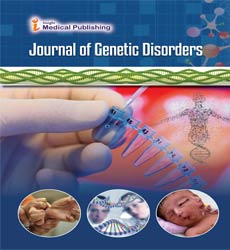Genetic Disorder
Abstract
The genetic disorder is a disease which is caused by changes in a person's DNA. This mutation may be caused by a mistake in DNA replication or by environmental factors such as cigarette smoking and radiation exposure that alter the DNA sequence. We discover that almost all diseases have a genetic element through uncovering the mysteries of the human genome (the full set of human genes). Some diseases are caused by parental mutations, such as Sickle cell disease, which occurs at the time of birth in a person. A single gene disease is represented in the presence of a mutated gene on the X chromosome. X-related illnesses are common in men, as they have only one X chromosome is present. More understanding of genomics in the last couple of decades has shown that the class of traditional genetic disease only describes conditions in which a particular genetic contribution is produced, whereas disease can really occur through several genes and the environment. In most cells in the body, many genetic conditions are the outcome of changes in the genes. This typically affects a large number of body systems and most of these illnesses cannot be treated. However, certain related indications and symptoms may be treated or managed using methods. The majority of genetic disease treatment techniques do not modify the basic genetic mutation, although certain gene therapeutic illnesses have been treated.
Open Access Journals
- Aquaculture & Veterinary Science
- Chemistry & Chemical Sciences
- Clinical Sciences
- Engineering
- General Science
- Genetics & Molecular Biology
- Health Care & Nursing
- Immunology & Microbiology
- Materials Science
- Mathematics & Physics
- Medical Sciences
- Neurology & Psychiatry
- Oncology & Cancer Science
- Pharmaceutical Sciences
